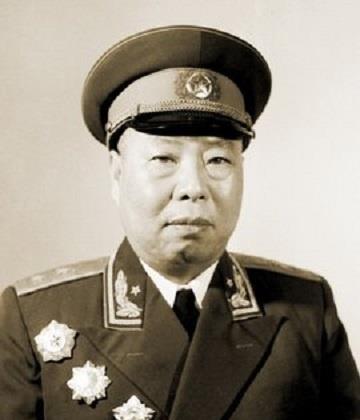The commander of the Red Army division later became a lieutenant general, the political commissar of the division was the chairman, and his men came out of 2 generals and 12 generals
In November 1931, the Red Fourth Front was established in Huang'an, under the jurisdiction of four divisions, four division commanders only 73 Division Commander Liu Ying had previously served as division commander, the other three were promoted by the regiment commander, but these three division commanders were high achievements in the future, the Red 11th Division Commander Wang Shusheng later became the deputy commander of the Red Fourth Front, after the founding of the People's Republic of China became a general, the Red 12th Division Commander Chen Geng was also one of the ten generals, and the Red 10th Division Commander Ni Zhiliang soon became the chief of staff of the Red Fourth Front, but he was a big figure in the Red Army After liberation he was only awarded the rank of lieutenant general, so among the founding lieutenant generals, his position in the Red Army period was the highest.

In 1900, Ni Zhiliang was born in Beijing, in his youth he joined the Anhui Army and the Shaanxi Army, and was later admitted to the Huangpu Ivy, in 1927 Ni Zhiliang participated in the Guangzhou Uprising, but soon after he lost contact with the team because of his serious illness, he came to Shanghai to find an organization, and soon after was ordered to carry out the peasant movement in the Eyu-Anhui Soviet District, and later served as the leader of the Red Army guerrilla group in northeast Hubei.
In October 1931, the Red Fourth Front was established, Ni Zhiliang served as the commander of the Red Tenth Division, becoming one of the four masters in the early days of the Red Fourth Front, but the commander of the Red Tenth Division only served for two months, and then served as the commander of the Red Eleventh Division, and the political commissar of the division was Comrade Li Xiannian, who later served as the chairman, both of whom were excellent generals who had been in the battlefield for a long time.
(From left, Wang Hongkun, Zheng Weisan, Xu Haidong, Ni Zhiliang)
In October 1932, the headquarters of the Red Fourth Front was attacked by the enemy, the most dangerous time the enemy was only more than 50 meters away from the headquarters, although the guard unit vowed to die to protect the safety of the headquarters, but after all, the strength was weak, when the Red Eleventh Division learned of the emergency battle situation, the political commissar stayed at the division headquarters, the division commander Ni Zhiliang arrived in time with some troops, lifted the siege of the headquarters, because of this wonderful performance, he was valued by Xu Xiangqian, a few months later, Ni Zhiliang was promoted to chief of staff of the Red Fourth Front, becoming a senior cadre in the Red Army.
After the founding of the People's Republic of China, the army and divisional cadres of the Red Fourth Front army produced 12 founding generals, all of whom were his subordinates.
After the Red Army reorganized the Eighth Route Army, Ni Zhiliang served as the chief of staff of the 129th Division, the deputy division commander was his old superior and old comrade-in-arms Xu Xiangqian, in October 1937, the 129th Division crossed the Yellow River to the anti-Japanese front, after several months of heroic struggle, the Eighth Route Army quickly expanded from the first 3 regiments to six regiments plus six guerrilla detachments, the anti-Japanese base area was further expanded, and later established the Jinji-Hebei Yu Military Region, and the commander of the military region was Ni Zhiliang.
In July 1945, Ni Zhiliang went to Yan'an to participate in the Seventh National Congress, at that time he was also received by the chairman, hoping that he could go to the New Fourth Army to assist Commander Chen Yi, in August of that year Ni Zhiliang served as the chief of staff of the New Fourth Army, in October he led a group of cadres to work in the northeast, although Ni Zhiliang served as the chief of staff of the New Fourth Army, but after all, the time was too short, during the War of Resistance He should be regarded as a senior general of the Eighth Route Army, after liberation, in 1955, the 129th Division of the Eighth Route Army came out of two generals, General Chen Geng and General Xiao Jinguang, and eight generals. These were all subordinates of General Ni Zhiliang, but for some reason he was only awarded the rank of lieutenant general.